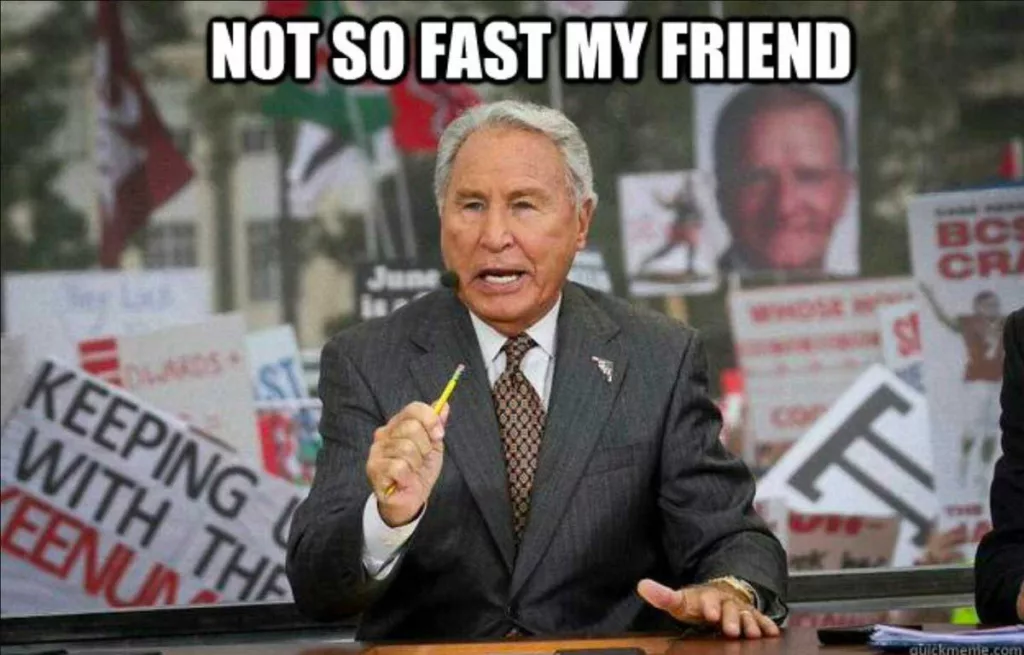What if everything you’ve heard about choosing a freelance niche was wrong?
Maybe not 100% wrong, but wrong enough that you’re risking your entire business by taking advice designed for somebody else?
The Myth of Niche
“You NEED a niche, or you won’t stand out.”
“The riches are in the niches!”
“You’ll never grow if you don’t niche.”
The advice to choose a freelance niche is so common these days that it feels like a requirement.
The argument is that by defining a SINGLE target client and NARROW set of services, you’ll become IRRESISTIBLE. That means more clients, more money, more consistently.
Simple, right?

Not so fast!
The truth is that niching is a risky strategy designed for a very particular type of business.
What type of business?
Product businesses.
Let’s look at an example.
What do you think of when you see this image?

If you’re like 99% of people out there, you think coffee.
Now whether you think it’s high-end coffee or burnt coffee or overpriced coffee depends on who you are. Even a company with extremely narrowly defined niche isn’t irresistible to everyone!
But, in fairness to niching… at least people know what they do.
To Starbucks, it’s incredibly important that somebody walking down the street instantly recognizes the logo and thinks “Coffee Sold Here!”
That brand recognition—the instant thought that “these guys sell coffee”—means that a much larger proportion of people will walk into Starbucks for a fresh cup of coffee than will walk into, say, the gas station or the diner on the corner.
That same scenario doesn’t apply to freelancing.
Your clients aren’t walking down the metaphorical streets of the internet, thinking “I need a freelancer who does X”, evaluating all their options, and choosing the one whose niche most clearly says “I do X.”
This isn’t Zuckerberg’s Metaverse…

If the vast majority of clients simply googled the freelance niche they were looking for and chose one of the first 3 results they found, there wouldn’t be over 59 million freelancers in the United States.
That’s more than one-third of the entire U.S. workforce.
Here in the real world, clients start by asking people they know.
They ask freelancers they’re already working with. They ask colleagues and friends.
If none of those work, maybe they post a job somewhere.
Simply put, clients don’t hire freelancers the way they buy coffee—or hamburgers, software, or any other pre-packaged product.
And that’s good news!
Because it means you don’t have to fit yourself into a box.
Why Niching Is Uncomfortable and Risky
If trying to pick a freelance niche feels awkward—even painful—congratulations! You’re normal.
We humans hate being put in boxes.
You may know a particular type of web development, write a particular type of content, or focus on a particular type of design.
But are you just that skill?
I doubt it.
Niching is uncomfortable because it forces you to arbitrarily limit your creativity.
It’s also incredibly risky, because it makes a ton of assumptions about the future of your business.
If you decide to narrow your focus—say, from being a generalist web developer to a specialist NodeJS Developer focused on a particular industry—you’re making a lot of risky assumptions:
- Do clients actually want that type of specialist?
- Are there enough clients who want that?
- Can you actually meet enough of those types of clients?
- Will they pay you enough?
- Will you actually like serving the exact same type of client—and only this type of client—over and over and over again?
Niching forces you to say “no” to every opportunity that comes your way that isn’t the one you guessed was correct.

It says “go all in” on a hunch.
It’s gambling.
Do you really want to gamble with your business?
What To Do Instead
So if niching is risky—and it’s designed for a different type of business whose customers find them in a totally different way—what should you do instead?
Instead of spending months trying to choose the perfect niche, build the perfect website, and create the perfect portfolio, I recommend one simple tactic:
Practice situational positioning.
What’s situational positioning?
It’s the time-honored tradition of personalizing what you say to the listener.
Let’s say you do web development for e-commerce companies. And you also work with software companies. And you help brick-and-mortar stores.
When you get on a call with a client, do you really have to say all that?
Of course not!
Just focus on the thing they care about.
If you’re talking to an e-commerce client, it’s okay to say “I specialize in helping e-commerce stores” and leave off all your other specialties.
This works because the best clients find freelancers through their networks.
And unlike a logo or a billboard, a 1-on-1 conversation doesn’t have to appeal to everybody.
You can personalize it to the client at hand.
If you want a step-by-step guide to how to have these conversations, checkout my in-depth article on positioning.
But the important thing here is that you don’t have to overthink it.
You don’t have to place artificial limits on your freelance business.
You can just be you.
Once you’ve started to get some traction—and you’re making $100K+ from your freelance business—it may be time to narrow your focus.
At that point, you can let your clients and your interests pull you towards focusing on one or two particular areas.
But until then, you don’t need a niche.

Leave a Reply